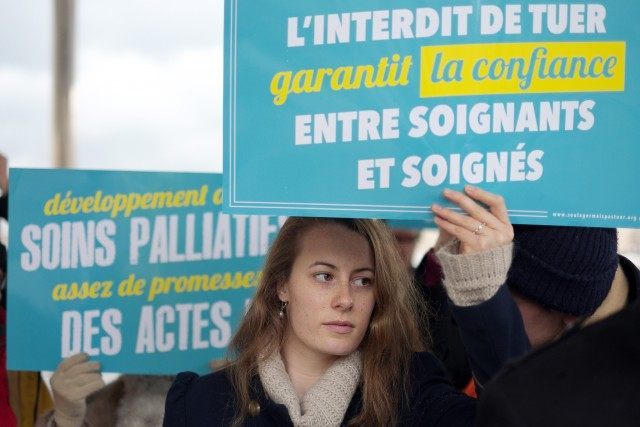The parents of a French man left in a coma have vowed to fight a European Court of Human Rights (ECHR) ruling that his life support machine should be turned off. The Catholic couple have insisted that their son Vincent is showing signs of recovery, and that to withdraw treatment would be tantamount to euthanasia.
Vincent, who has been in a coma for seven years following a motorcycle accident, has his wife Rachel and six of his eight siblings to thank for the current conundrum. They have agreed with doctors that there is no chance of his recovery, and would like to see the intravenous food and water which is keeping him alive withdrawn.
But his parents and two of his siblings are battling to keep him alive, arguing that his situation constitutes a “handicap”, not an “incurable brain disease” and that withdrawing nutrition would be “akin to torture”.
Speaking to the Sunday Telegraph, Viviane Lambert, Vincent’s mother said: “This is nothing less than hidden euthanasia. It’s scandalous. They are condemning my son to death.
“Vincent has progressed gradually, since Christmas he can now lift his right leg. We are with him every day, we have contact with him through his eyes, through music. When we put on music that he likes, Vincent reacts, he shows emotion.
“We are not giving up, we are going to fight this unjust decision.”
On Friday afternoon, the ECHR ruled by a majority of 12 to five that the decision taken by Rachel Lambert to withhold nutrition from her husband did not violate European human rights laws. But the five dissenting judges condemed the decision, saying that court had “forfeited” the right to call itself the “conscience of Europe”.
The case is also likely to set a precedent for similar cases across the European Union. Mrs Lambert said that the ruling sent a “grave” message to families with members in “a similar situation to Vincent or worse. These families will feel totally helpless,” she said. “We are fighting for Vincent and for the others.”
The Strasbourg court heard that Lambert had told his wife that if he were ever in a dependent state he would not want to be kept alive, as he did not share his parents’ Catholic views. Following the judgement, a tearful Rachel Lambert said “My thoughts are very much with my husband. There’s no relief, no joy to express. We’d just like his will to be done.”
Laurent Pettiti, Rachel Lambert’s lawyer, said it was hard to imagine how a decision by Europe’s highest court could be overturned. Nonetheless, Vincent’s treatment will not be withdrawn immediately, as the doctor who first made the recommendation that he be allowed to die has since left the hospital in Riems where Vincent is being treated. It will be up to a new medical team to reassess him before treatment is withdrawn.
His parents are determined to see him moved to an alternative clinic in Strasbourg which is willing to treat Vincent more comprehensively. “For us, he is the victim of mistreatment,” said Mrs Lambert. “Vincent has not had physiotherapy for more than two years… We want to move him to a more suitable institution whose head of service has examined him and defends our point of view.”
Bernard Jeanblanc, the head doctor at the Strasbourg clinic has said that Vincent “is not in a vegetative state”, but has a degree of conscienceness which allows him to interact with his environment.
Euthanasia is currently illegal in France, although during his 2012 presidential campaign, President Hollande pledged to relax laws dealing with terminal illness. In March this year, French parliamentarians voted overwhelmingly in favour of a law that allows doctors to place terminally ill patients into a deep sleep until they die.
The new law also makes “living wills”, in which people can state that they do not wish to be kept alive if they are too ill to decide, legally binding on doctors.

COMMENTS
Please let us know if you're having issues with commenting.